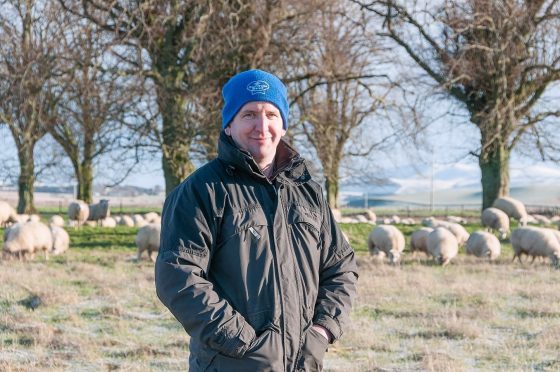Farmers and crofters have until the end of this month to apply to become a monitor farmer.
Nine host farm businesses are sought for a new monitor farms programme, which is being run by Quality Meat Scotland (QMS) and AHDB Cereals and Oilseeds.
The programme has been funded by a £1.25million grant from the Scottish Government and European Union’s Knowledge Transfer and Innovation Fund.
It sets out to establish farms, typical of their area, as demonstration units and a place to share best practice in a bid to improve the profitability, productivity and sustainability of agriculture.
Farms are sought in the following areas: Nithsdale; Scottish Borders; North Ayrshire; Lothians; Mearns and Angus; Lochaber; Morayshire; Sutherland; and Shetland.
Lanarkshire farmers Andrew and Jennifer Baillie, of Carstairs Mains Farm, near Carnwath, were QMS monitor farmers between 2012 and 2015.
The couple said participation in the programme helped them improve their grazing system, increase stocking rates by 50% and up sheep numbers from 200 to 650 ewes.
Mr Baillie said: “I jumped at the chance to be a monitor farm, as it was critical for us to maximise output when we had no entitlement. The changes I have made and benefits I have seen are a direct result of being part of the process.”
The deadline to apply to become a new monitor farmer is September 30 and application forms can be downloaded online at www.qmscotland.co.uk.
Each of the nine new monitor farms will have its own management team and an associated business group which will evaluate solutions and best practice before sharing its findings, both with the wider community groups and more generally, through various media channels including a dedicated website.
Farmers interested in applying must meet certain criteria – farming has to be a full-time profession for at least one of the family members and the farmers need to be willing to disclose information about their businesses with a group of neighbouring farmers and embrace the opportunity for innovation on their farms.
Facilitators will be appointed to work with the monitor farmers to show how the use of accurate baseline and benchmarking information can help to improve the profitability of the monitor farm and other farm businesses in the area.
The project will run until 2020 and farmers will be expected to host around six farm visits every year.
